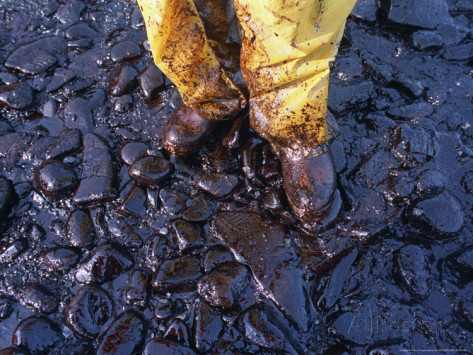The windfall from oil initiated what should be appropriately described as “a curse” it instantly obliterated the middle class and extended the consumption pattern of the upper class, thus creating an illusion among the lower class.
Although it was also observed that the curses or woes of crude oil resource which emanate mainly from the exploration and production on activities of the multinational companies take the form of oil spills, environmental pollution or degradation, destruction of landscape, unemployment, socio-economic-political instability and pervasive poverty, among others.
With oil discovery, comes politics which, over the years, has contributed to the menace and disaster in the Niger Delta through oil spills, bombing of pipelines, kidnapping.
This was not limited to the revenue allocation formula and resource control, federalism, environmental degradation, state-imposed poverty, unfulfilled promises made by the government, to mention a few.
The latest discovery of oil in Lagos comes with more mixed feelings, although joining the league of oil-producing states in the country, which drilling is to commence later this year; but there is also the fear of vandalism leading to oil spills and environmental degradation.
Oil deposits were also anticipated in some parts of the North long ago, but this did not get much attention probably due to the unitary or centralised political system introduced by the military.
Before it snatched power, a true fiscal federation was in practice after colonial rule whereby mineral producers or explorers of any form of resource grew individual economies from their tills. The four pre and post- independence Regions of Nigeria had wealth peculiar to their geography. For instance, the North prided itself in agriculture, particularly in cash crops like groundnut and cotton; the West and Mid-west with Cocoa, while the East had palm oil.
“The decision to diversify our business portfolio is about all of us and about the future of our dear country, the vision is clear, and we are determined not to fail,” the Group Managing Director (GMD) of the Nigerian National Petroleum Corporation (NNPC), Dr. Ibe Kachikwu, who was represented by the Group General Manger Public Affairs of the NNPC, Malam Garuba Deen Muhammad, disclosed.
He said Nigeria would start oil drilling activities in the Chad Basin by the last quarter of this year.
Although he stressed that seismic data acquisition activities had progressed reasonably before it was interrupted by insurgency in the North, he noted that the purpose for oil exploration in the Chad Basin “is to increase Nigeria’s oil and gas reserves, add value to the hydrocarbon potentials of the Nigerian inland basin, provide investment opportunities, boost the economy as well as create millions of new jobs.”
The NNPC had announced the discovery of oil reserves in the Lake Chad Basin, in the North-east. Already Africa’s largest oil producer, Nigeria’s newest reported find is far from the Niger Delta, the centre of the current oil industry on which the country’s economy is overwhelmingly dependent.
Further exploration will almost certainly be required to confirm the discovery. If the area does in fact hold accessible reserves, however, the find must be considered within the context of the country’s political and security dynamics, two of which in particular deserve special consideration.
Although The Chad Basin oil exploration which started over 30 years ago had suffered series of delays. In 2006, the federal government and the Northern Nigeria Development Company (NNDC), owned by the 19 northern states, revisited the project and signed a Production Sharing Contract (PSC) agreement in respect of four oil blocs allocated to the NNDC for oil prospecting in the Lake Chad Basin.
The then Group Managing Director (GMD) of NNDC, Alhaji Aliyu Alkali, said with the approval, the search for the oil would begin with full commitment. The NNDC later signed a Memorandum of Understanding (MoU) with African Finance Corporation.
Undoubtedly, there is high hope among the locals on the prospects of getting oil in commercial quantity in Northern Nigeria which according to them will stabilise the country’s politics of suspicion, bickering and rivalry over resource control and revenue formula.
First, Lake Chad straddles the intersection where Nigeria, Chad, and Niger meet. The oil find lies in a low-lying depression in Borno State, the spiritual home of the Islamist Boko Haram militant group.
Maiduguri, the state capital, has seen some of the worst violence attributed to the group and regular clashes between security services and Boko Haram fighters. If the discovery is in fact confirmed, any company involved in extraction will face considerable security threats. The vast infrastructure networks on which oil and gas industries are dependent provide attractive targets for militants, and are virtually impossible to secure entirely.
Boko Haram’s historical targeting strategies have prioritised government personnel and facilities, but recent attacks on mobile phone towers, the risk of which Global Torchlight warned about last year, demonstrate the group’s willingness to target commercial infrastructure when it suits its objectives.
Second, one of the most challenging political issues that shape Nigerian politics surrounds the question of how oil revenues should be distributed between the federal government and the country’s 36 states. Because oil is the greatest contributor to Nigeria’s GDP, the government has sought to maintain some degree of revenue sharing in order to minimise economic inequality between the coastal oil-producing states and those further inland.
That the South is predominantly populated with Christians, while the North is mostly Muslim, adds a difficult sectarian element to this issue. Essentially, states in the South lobby to maintain a greater share of their oil wealth, while those in the North seek even greater equity; officials from both blocs have criticised the Federal Government for the large share of revenue that it grants to itself.
A new find in Borno State will further complicate the ongoing debate, potentially exacerbating north-south tensions further, while also creating a new point of discontentment between Borno State and the non-oil-producing states in the North with which it was formerly allied on this issue.
So, even if the Nigerian government will have to explore and produce more oil resources, it should not take the prospect and commercial risks absolutely and should not explore any price below $40 per barrel. The money should, however, be redirected for development, incentive, infrastructure and social welfare for the development of the real sector of the economy.













